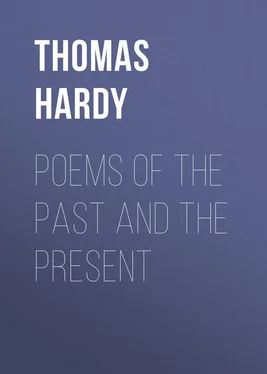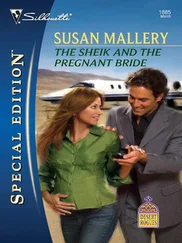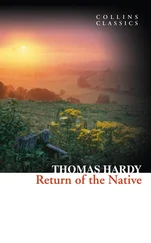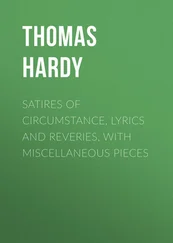Thomas Hardy - Poems of the Past and the Present
Здесь есть возможность читать онлайн «Thomas Hardy - Poems of the Past and the Present» — ознакомительный отрывок электронной книги совершенно бесплатно, а после прочтения отрывка купить полную версию. В некоторых случаях можно слушать аудио, скачать через торрент в формате fb2 и присутствует краткое содержание. Жанр: foreign_antique, foreign_prose, на английском языке. Описание произведения, (предисловие) а так же отзывы посетителей доступны на портале библиотеки ЛибКат.
- Название:Poems of the Past and the Present
- Автор:
- Жанр:
- Год:неизвестен
- ISBN:нет данных
- Рейтинг книги:4 / 5. Голосов: 1
-
Избранное:Добавить в избранное
- Отзывы:
-
Ваша оценка:
- 80
- 1
- 2
- 3
- 4
- 5
Poems of the Past and the Present: краткое содержание, описание и аннотация
Предлагаем к чтению аннотацию, описание, краткое содержание или предисловие (зависит от того, что написал сам автор книги «Poems of the Past and the Present»). Если вы не нашли необходимую информацию о книге — напишите в комментариях, мы постараемся отыскать её.
Poems of the Past and the Present — читать онлайн ознакомительный отрывок
Ниже представлен текст книги, разбитый по страницам. Система сохранения места последней прочитанной страницы, позволяет с удобством читать онлайн бесплатно книгу «Poems of the Past and the Present», без необходимости каждый раз заново искать на чём Вы остановились. Поставьте закладку, и сможете в любой момент перейти на страницу, на которой закончили чтение.
Интервал:
Закладка:
THE DEAD DRUMMER
They throw in Drummer Hodge, to rest
Uncoffined – just as found:
His landmark is a kopje-crest
That breaks the veldt around;
And foreign constellations west
Each night above his mound.
Young Hodge the Drummer never knew —
Fresh from his Wessex home —
The meaning of the broad Karoo,
The Bush, the dusty loam,
And why uprose to nightly view
Strange stars amid the gloam.
Yet portion of that unknown plain
Will Hodge for ever be;
His homely Northern breast and brain
Grow up a Southern tree.
And strange-eyed constellations reign
His stars eternally.
A WIFE IN LONDON
( December , 1899)
She sits in the tawny vapour
That the City lanes have uprolled,
Behind whose webby fold on fold
Like a waning taper
The street-lamp glimmers cold.
A messenger’s knock cracks smartly,
Flashed news is in her hand
Of meaning it dazes to understand
Though shaped so shortly:
He – has fallen – in the far South Land .
’Tis the morrow; the fog hangs thicker,
The postman nears and goes:
A letter is brought whose lines disclose
By the firelight flicker
His hand, whom the worm now knows:
Fresh – firm – penned in highest feather —
Page-full of his hoped return,
And of home-planned jaunts by brake and burn
In the summer weather,
And of new love that they would learn.
THE SOULS OF THE SLAIN
The thick lids of Night closed upon me
Alone at the Bill
Of the Isle by the Race 1 1 The “Race” is the turbulent sea-area off the Bill of Portland, where contrary tides meet.
—
Many-caverned, bald, wrinkled of face —
And with darkness and silence the spirit was on me
To brood and be still.
No wind fanned the flats of the ocean,
Or promontory sides,
Or the ooze by the strand,
Or the bent-bearded slope of the land,
Whose base took its rest amid everlong motion
Of criss-crossing tides.
Soon from out of the Southward seemed nearing
A whirr, as of wings
Waved by mighty-vanned flies,
Or by night-moths of measureless size,
And in softness and smoothness well-nigh beyond hearing
Of corporal things.
And they bore to the bluff, and alighted —
A dim-discerned train
Of sprites without mould,
Frameless souls none might touch or might hold —
On the ledge by the turreted lantern, farsighted
By men of the main.
And I heard them say “Home!” and I knew them
For souls of the felled
On the earth’s nether bord
Under Capricorn, whither they’d warred,
And I neared in my awe, and gave heedfulness to them
With breathings inheld.
Then, it seemed, there approached from the northward
A senior soul-flame
Of the like filmy hue:
And he met them and spake: “Is it you,
O my men?” Said they, “Aye! We bear homeward and hearthward
To list to our fame!”
“I’ve flown there before you,” he said then:
“Your households are well;
But – your kin linger less
On your glory arid war-mightiness
Than on dearer things.” – “Dearer?” cried these from the dead then,
“Of what do they tell?”
“Some mothers muse sadly, and murmur
Your doings as boys —
Recall the quaint ways
Of your babyhood’s innocent days.
Some pray that, ere dying, your faith had grown firmer,
And higher your joys.
“A father broods: ‘Would I had set him
To some humble trade,
And so slacked his high fire,
And his passionate martial desire;
Had told him no stories to woo him and whet him
To this due crusade!”
“And, General, how hold out our sweethearts,
Sworn loyal as doves?”
– “Many mourn; many think
It is not unattractive to prink
Them in sables for heroes. Some fickle and fleet hearts
Have found them new loves.”
“And our wives?” quoth another resignedly,
“Dwell they on our deeds?”
– “Deeds of home; that live yet
Fresh as new – deeds of fondness or fret;
Ancient words that were kindly expressed or unkindly,
These, these have their heeds.”
– “Alas! then it seems that our glory
Weighs less in their thought
Than our old homely acts,
And the long-ago commonplace facts
Of our lives – held by us as scarce part of our story,
And rated as nought!”
Then bitterly some: “Was it wise now
To raise the tomb-door
For such knowledge? Away!”
But the rest: “Fame we prized till to-day;
Yet that hearts keep us green for old kindness we prize now
A thousand times more!”
Thus speaking, the trooped apparitions
Began to disband
And resolve them in two:
Those whose record was lovely and true
Bore to northward for home: those of bitter traditions
Again left the land,
And, towering to seaward in legions,
They paused at a spot
Overbending the Race —
That engulphing, ghast, sinister place —
Whither headlong they plunged, to the fathomless regions
Of myriads forgot.
And the spirits of those who were homing
Passed on, rushingly,
Like the Pentecost Wind;
And the whirr of their wayfaring thinned
And surceased on the sky, and but left in the gloaming
Sea-mutterings and me.
SONG OF THE SOLDIERS’ WIVES
At last! In sight of home again,
Of home again;
No more to range and roam again
As at that bygone time?
No more to go away from us
And stay from us? —
Dawn, hold not long the day from us,
But quicken it to prime!
Now all the town shall ring to them,
Shall ring to them,
And we who love them cling to them
And clasp them joyfully;
And cry, “O much we’ll do for you
Anew for you,
Dear Loves! – aye, draw and hew for you,
Come back from oversea.”
Some told us we should meet no more,
Should meet no more;
Should wait, and wish, but greet no more
Your faces round our fires;
That, in a while, uncharily
And drearily
Men gave their lives – even wearily,
Like those whom living tires.
And now you are nearing home again,
Dears, home again;
No more, may be, to roam again
As at that bygone time,
Which took you far away from us
To stay from us;
Dawn, hold not long the day from us,
But quicken it to prime!
Интервал:
Закладка:
Похожие книги на «Poems of the Past and the Present»
Представляем Вашему вниманию похожие книги на «Poems of the Past and the Present» списком для выбора. Мы отобрали схожую по названию и смыслу литературу в надежде предоставить читателям больше вариантов отыскать новые, интересные, ещё непрочитанные произведения.
Обсуждение, отзывы о книге «Poems of the Past and the Present» и просто собственные мнения читателей. Оставьте ваши комментарии, напишите, что Вы думаете о произведении, его смысле или главных героях. Укажите что конкретно понравилось, а что нет, и почему Вы так считаете.












